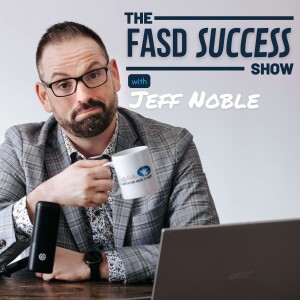
Send us a text
Today’s episode comes with a trigger warning. Also, if you play our episodes while your children are in the room, I suggest you wear headphones or listen when alone because we talk openly about challenging behaviours, addictions, mental health, truancy, running away and suicide.
My conversation with Megan Tucker about Harm Reduction may also trigger reactions to long-held beliefs or value clashes – but if you feel like you are at the end of your proverbial rope with any of the above, the Harm Reduction Model is a shift in thinking and supporting that can turn things around.
I have known my guest for many years, having attended conferences as presenters and worked with Megan in my CKS program. She is the Training Coordinator, as well as a Prevention Conversation Facilitator at the Lakeland Centre for FASD (Alberta). She studied Humanities at the University of Alberta. Megan has worked at the Lakeland Centre for almost 10 years in multiple capacities. She created and implemented the Transition to Adulthood Program currently in place at the Centre and was also Children’s Coordinator as a part of the Centre’s Post Diagnostic Services. She provides FASD training in the Lakeland region as well as at conferences outside of the region.
If you haven’t heard of harm reduction or harm minimization, it refers to policies or programs designed to lessen the negative social and/or physical consequences associated with both legal and illegal human behaviour. This is a model that is now being adopted to help people who support people with FASD.
So do you need to implement harm reduction? You might if you feel you have tried “everything” and “nothing” has worked, and you view your child's or client's behaviours as purposeful and willful. Are you constantly frustrated and mad? If so, it is unlikely you are providing the supports they need and harm reduction might be what you need.
“We get so angry at the behaviour and we misinterpret it and then we disconnect and that’s when our child (teen, adult) goes to look for connection elsewhere. What does the brain need? Connection. We all need a connection. We need to be cared about. We need to know that we are good and valuable people."
Megan and I explore what we need to understand about individuals with FASD, as well as:
- What the root of harm reduction is (and isn’t).
- The brain domains and inconsistencies that make individuals vulnerable.
- Two keys to the harm reduction model.
Harm reduction is unorthodox, as it goes against what we were taught or how we are used to parenting. It can feel like it won’t work, or you are giving in. You need to ask yourself, what part are you playing in the behaviour? And you need to understand the brain basis behind the behaviour. But the more you can make sense of it, the better off everyone will be.
This is a difficult topic for many caregivers. There is no judgement here and like with anything about FASD, you don’t know what you don’t know. So, we offer different ways to provide support to ensure success for caregivers and individuals on the Spectrum. Harm reduction is peeling back the layers to find the disconnect. Figuring out how we can reconnect and show up for our kids, to let them know they are good and valuable, so they don’t find that connection somewhere else.
If you want to learn more about Megan’s work, and the Lakeland Centre for FASD, she is hosting monthly Lunch and Chats on Facebook (link in Show Notes) to explore different topics.
Let me know what you think about this topic. Is it something you've heard of? Use? Found success with?
Show Notes:
Support the Show.
More Episodes
 2024-05-24
2024-05-24
 2024-05-19
2024-05-19
 2024-03-11
2024-03-11
Create your
podcast in
minutes
- Full-featured podcast site
- Unlimited storage and bandwidth
- Comprehensive podcast stats
- Distribute to Apple Podcasts, Spotify, and more
- Make money with your podcast
It is Free
- Privacy Policy
- Cookie Policy
- Terms of Use
- Consent Preferences
- Copyright © 2015-2024 Podbean.com





